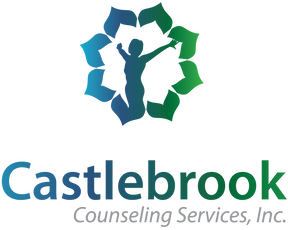What is EMDR?By David Polidi, LICSW, MEd“Freedom is what you do with what’s been done to you.” –Jean-Paul Sartre
We all experience trauma. I am not only speaking about the type of trauma that happens when we experience horrific things such as accidents, violence, or combat. I am also speaking about the injustices and personal violations that we all experience at some point in our lives…. Parents who were never attuned to our emotions or who were physically and verbally aggressive, other school children who taunted and humiliated us, caregivers struggling through their own addictions and mental health issues, and on and on…. Having these moments in our lives does not mean that we have trauma. Trauma is defined by our experience of these things. When we are in a situation and feel overwhelmed/ disoriented, and our bodies are not sure how to keep us safe, events can stay stuck inside of our memory. We can be reminded of these events over and over again, and even when we are in a relatively safe space, our bodies can feel as if we have traveled back to the original disturbing event. It can feel as if we are being threatened over and over again– this is trauma. EMDR is one strategy that can be used within therapy to help recover from trauma. Francine Shapiro, who developed EMDR therapy, shared that she sees this as a form of “reprocessing therapy.” Traumatic memories in the body and brain are unlocked, processed and then released from our bodies so we are no longer impacted by the intensity and terror that go along with trauma. EMDR stands for Eye Movement Desensitization and Reprocessing. In early stages of the development of this protocol, the therapist would have the client move their eyes back and forth simulating REM sleep, and this seemed to help them go into a state where the trauma memories could be accessed on a somatic level. More recently, therapists practicing EMDR have found other ways to help someone tap into these emotions and experiences, and so while some therapists continue to help someone use eye movements, there are other ways to stimulate the same areas of the brain. EMDR is one of the only forms of therapy that is scientifically proven to have positive results in trauma processing. While the exact mechanisms are still somewhat unclear, EMDR rewires how the brain recalls and remembers traumatic events. EMDR integrates well with other forms of therapy, such as the traditional talk therapy approaches and works to help clients increase their hope, resiliency and their innate ability to move in a more positive direction in their life. Although research has shown that the most successful therapy depends on the relationship that is created between you and your therapist, it could also be helpful to get a better understanding of what models of therapy your therapist feels comfortable using, what models they find to be most effective and for what types of presenting problems. As you learn more about the different types of therapeutic models that are out there, you can see what type of therapy resonates with you, and what you would like to explore in your own path to healing.
0 Comments
|
Archives
May 2025
Categories |
Mission Statement
Castlebrook Counseling Services, Inc. is a group of private practice clinicians with a shared goal of strengthening our community by providing therapy and clinical support designed for children, adults, and families to successfully meet life’s challenges.
 RSS Feed
RSS Feed

